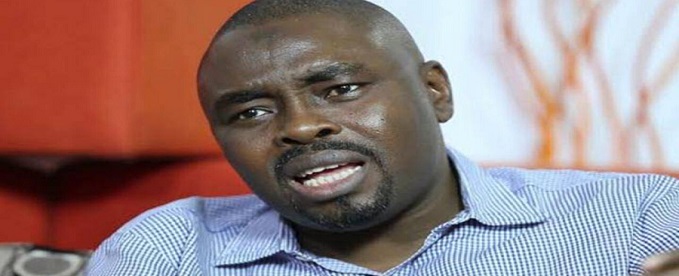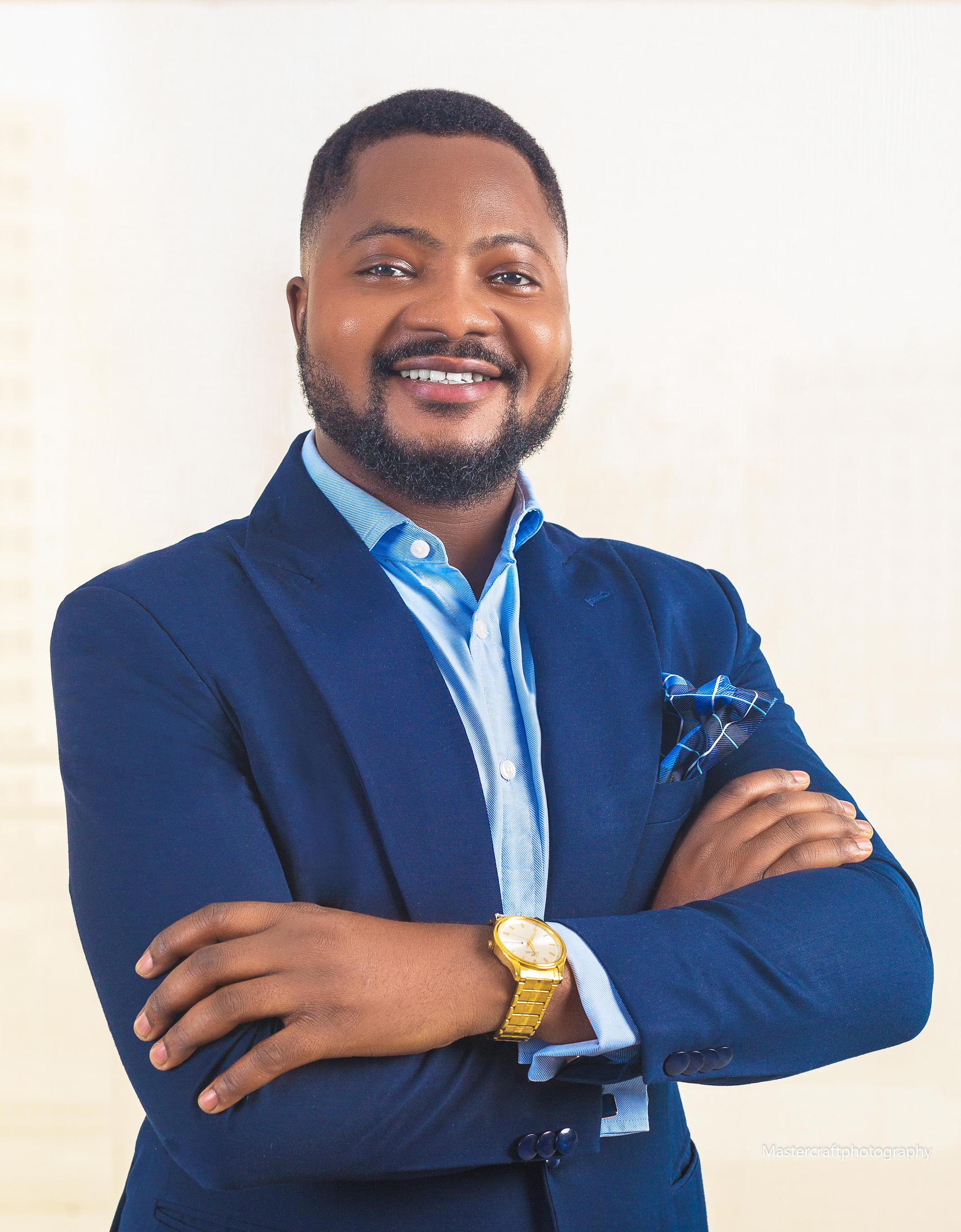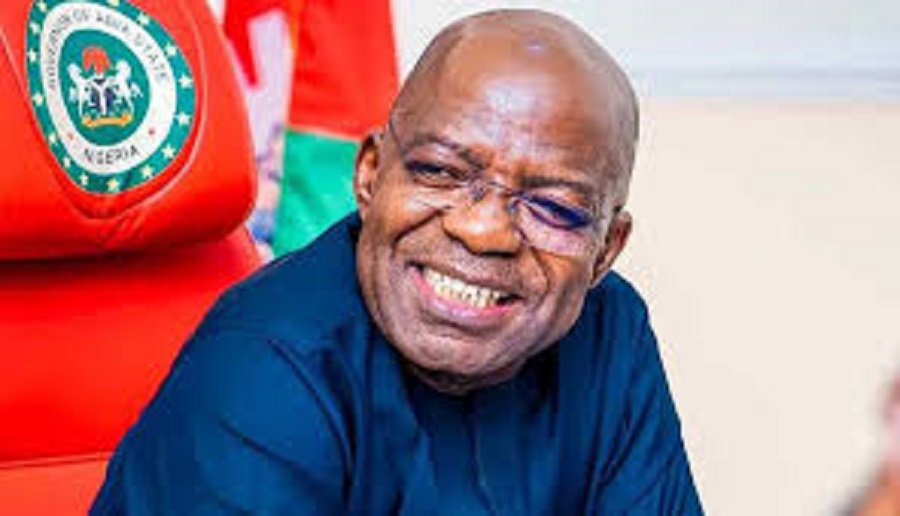E-Business
FG Withdraws Charges of Cyberstalking against Suraju, HEDA Chair

Federal government on Tuesday withdrew cyberstalking charges against Olanrewaju Suraju, chairman, Human and Environmental Development Agenda (HEDA).

Olanrewaju Suraju, chairman, Human and Environmental Development Agenda (HEDA).
The Attorney-General of the Federation (AGF) office had arraigned Suraju, on amended two counts of cyberstalking Mohammed Adoke, former Attorney-General of the Federation.
Mr Adoke had petitioned the police accusing the HEDA chair of peddling falsehood against him in respect of the Malabu Oil scam.
Last February, the federal government arraigned Mr Suraju before Binta Nyako, a judge of the Federal High Court in Abuja, on a two-count amended charge.
At Tuesday’s sitting, the judge discharged Mr Suraju following an application by the Attorney-General of the Federation, Abubakar Malami, to withdraw the charge against the HEDA boss.
Yewande Cole, prosecuting lawyer, told the court that she had been directed by the Attorney-General to withdraw the suit.
“I have the instruction of the Attorney-General to withdraw the amended charge of two counts for further review.
“This means that the court will strike out the case and when we are ready to go on, we will come back and refile it,” Ms Cole said.
She also argued that according to relevant provisions of the law, the defendant could only be discharged and not acquitted at this point.
But Mr Suraju’s lawyer, Muiz Banire, a Senior Advocate of Nigeria (SAN), asked the court to acquit his client.
He argued that there was no natural cause of action following such a request for withdrawal.
“It is the law as contained in Section 355 of the Administration of Criminal Justice Act (ACJA) that where such an application is made, the court will acquit the defendant,” the senior lawyer said.
Mr Banire also asked the court to order the release of the N7 million bond he posted to secure the bail of his client.
The senior lawyer further asked the court to award N1 million cost to him.
In a bench ruling, the judge discharged Mr Suraju and also discharged the N7 million bail bond.
In addition, Mrs Nyako, ordered the prosecution to pay N250,000 to the defendant, whenever the case was going to be refiled.
Background
Mr Adoke, had petitioned the Nigerian police over the circulation of the audiotape and email which Mr Adoke said were forged to incriminate him regarding the Oil Prospecting Licence (OPL) 245 corruption case in Milan, Italy.
The police investigated Mr Adoke’s petition against Mr Suraju and subsequently sent the case file to the Attorney-General of the Federation’s office which filed a cyberstalking case against Mr Suraju.
But, during their series of denials of wrongdoing regarding the matter, HEDA and Mr Suraju had explained that the items he was accused of fabricating were court exhibits which featured in the Malabu Oil scam trials in Milan, Italy.
In their open letter to President Muhammadu Buhari and the Attorney-General of the Federation, Abubakar Malami, they maintained that the statements allegedly made by Mr Suraju were identical to those that have been made by the Federal Republic of Nigeria in its civil cases against JP Morgan Chase in London and its case against Shell, Eni and other defendants in Milan.
Nigeria has been part of civil and criminal cases in the U.K., Italy, and the U.S. in a bid to bring beneficiaries of the fraudulent transactions to book and to recover proceeds of the controversial deal from them.
The email and audiotape complained of by Mr Adoke had featured in the criminal case in Milan, Italy over the transfer of about $1.1 billion by Shell and ENI through the Nigerian government to accounts controlled by a former Nigerian petroleum minister, Dan Etete.ALSO READ: Malabu: FG arraigns HEDA chair, Suraju, over alleged falsehood against Adoke
The controversies surrounding the OPL 245 started in 1998 when Mr Etete originally awarded the block to his Malabu Oil and Gas Limited while serving as petroleum minister in the late Sani Abacha`s regime.
E-Business
NIMC to Prosecute Nigerians Printing ‘NIN Cards’, Says Only Slip is Legal

National Identity Management Commission (NIMC) yesterday said that it has mandated security agencies to arrest and prosecute Nigerians printing what it described as ‘NIN cards’ ahead of its planned General Multipurpose Card (GMPC).

NIMC in a statement by Kayode Adegoke, head, Corporate Communications Unit, reiterated that the NIN slip is the only legal document authorized as a means of identification.
NIMC said it has observed that “some unscrupulous individuals, cyber cafes, and organizations” are indiscriminately printing unauthorized NIN cards and charging unsuspecting members of the public exorbitant fees.
Such activities, it warned, are a direct violation of the NIMC Act No. 23 of 2007.
NIMC urged the public and organizations to refrain from printing or accepting these unauthorized cards, emphasising that they are not legally recognised.
On no account should these counterfeit NIN cards be presented as valid means of identification.
The security agencies have been notified and mandated to apprehend those involved, with offenders set to face legal consequences.
The commission reaffirmed that the only valid document for identification is the NIN slip, which must be verified before accessing services.
To address public demand, NIMC has concluded plans to launch the Improved GMPC, a multifunctional card serving as both a physical identification document and a payment card, powered by the AfriGO local payment platform.
E-Business
Unleashing Nigeria’s Business Potential: The Cloud as Catalyst for Growth

By Kehinde Ogundare, Country Head, Zoho Nigeria
Nigeria’s entrepreneurial spirit is undeniable. Amidst a dynamic and competitive market, businesses are brimming with potential, poised to become regional and even global powerhouses. However, realising this potential requires navigating a challenging landscape—one marked by limited IT resources, complex operational hurdles, and the inertia of traditional business practices. For Nigerian businesses, the path to sustainable growth lies in digital transformation, with cloud-based technologies serving as a key enabler.

With a burgeoning middle class and a tech-savvy population, Nigeria offers fertile ground for innovation and expansion. Yet, many businesses remain tethered to manual processes, limiting their ability to scale and compete effectively. This is where cloud technology and comprehensive digital toolsets become indispensable.
The need for digital transformation
Traditional growth models lack the agility needed to keep pace with an evolving market. Manual processes lead to inefficiencies, limited data insights hinder informed decision-making, and restricted IT resources stifle innovation. To overcome these hurdles, businesses must adopt digital tools that streamline operations, automate workflows, and provide actionable insights.
Digital transformation isn’t about adopting technology for its own sake—it’s about scaling efficiently. In today’s digital economy, scaling is critical for businesses seeking to expand their market reach, remain competitive, and meet evolving customer demands. Digital tools enable businesses to amplify their impact, drive revenue growth, and optimise costs, ensuring long-term sustainability.
The power of cloud-based solutions
Cloud-based platforms eliminate the need for costly infrastructure investments, offering businesses access to cutting-edge technology on a flexible, scalable basis. By automating repetitive tasks, streamlining workflows, and enhancing productivity, these platforms free up valuable resources, allowing businesses to focus on strategy and customer engagement.
An integrated SaaS platform offers a unified ecosystem to manage all facets of a business. By providing a centralised suite of applications, it automates workflows, reduces manual data entry, and improves team collaboration. Businesses can reduce operational costs and accelerate decision-making, ultimately enabling faster expansion into new markets.
With Zoho software, the emphasis is on contextual intelligence, leveraging AI to provide genuine customer value. In a market where customer experience is paramount, Zoho’s AI-powered insights enable businesses to personalise interactions, anticipate needs, and strengthen customer relationships. Zoho’s unwavering commitment to customer privacy also ensures that businesses can leverage data responsibly, fostering trust and long-term loyalty.
A holistic approach to business growth
Zoho’s philosophy of optimising the entire technology stack—from hardware to software—ensures seamless integration and optimal performance. This holistic approach translates into better technology for Nigerian businesses, enabling them to focus on their core competencies without being weighed down by technical complexities.
For Nigerian businesses, digital transformation is no longer optional—it’s a necessity. By embracing cloud-based technology, they can overcome traditional growth barriers, scale efficiently, and unlock their full potential.
The future of Nigerian business is digital. By adopting the cloud, businesses can transform challenges into opportunities, paving the way for sustainable growth in an increasingly competitive global marketplace.
E-Business
Otti, Abia State Gov Promises Internet Access for all Abia Communities in 9 Months

All communities in Abia State are to be connected to Internet Service within the next 9 months, according to Dr. Alex Otti, state governor.

All communities in Abia State are to be connected to Internet Service within the next 9 months, according to Dr. Alex Otti, state governor.
Otti stated this at the Nnamdi Azikiwe State Secretariat premises at Umuahia, the state capital, while flagging off the first phase of the Umuahia Dedicated Internet Access/Wide Area Network And Managed Network Services Project (Project), saying that it promises to re-engineer efficiency and flexibility in operations and interactions within and amongst institutions, enhance policy execution, and engender a culture of outcome-oriented competition amongst civil servants.
The Project is being handled by iPNX, a major internet service provider.
At the ceremony, Otti, said the project includes distributing high-performance digital tools, laying fibre optic cables in public institutions, and installing infrastructure for high-speed data transmission.
He added that the initiative focuses on improving leadership efficiency, empowering civil servants with digital tools, and enhancing service delivery.
Transitioning to digital platforms would streamline government processes, enable faster communication among Ministries, departments, and Areas (MDAs), and improve engagement with development partners and the global community.
The governor also announced a mandatory digital literacy requirement for civil servants, making proficiency in technology essential for career growth.
Assuring that while the government would provide training, those unwilling to embrace technology risk becoming uncompetitive in the evolving civil service structure.
Plans are underway to expand digital access across Abia, with an agreement already in place to lay fiber optic cables in Aba, Umuahia, and Ohafia.
Otti directed Mr. Gerald Ilukwe, chief information officer to ensure that within nine months, every community in Abia must have reliable network service, enabling businesses to thrive virtually.
The Governor urged the people of Abia to embrace technology as a tool for empowerment rather than a replacement for human roles as the use of technology ought to be on enhancing service delivery and economic development, as well as keeping human decision-making at the core of governance.
The commencement of the initiative marks a major milestone in Abia’s journey towards a fully digital economy.
Ilukwe, described the project as a critical foundation for a digital government, emphasising its role in modernising service delivery.
Ilukwe said Phase I of the initiative prioritises multi-tenant buildings and complexes housing multiple MDAs and assured that MDAs not included in this phase would be covered in subsequent stages.
“Even as we are rounding off this phase, we are already preparing for the next, by the end of this service year, the entire government offices in Umuahia will be interconnected on a single network,” Ilukwe said.
Mr Ejovi Aror, group managing director, ipNX, expressed gratitude to Gov. Alex Otti for the opportunity to be part of the state’s digital transformation journey.
“This partnership signals the beginning of a new chapter in the journey towards building a digitally connected, technologically advanced, and economically empowered Abia State,” Aror said.

 Broadcasting2 days ago
Broadcasting2 days agoNGO Blasts MultiChoice for Tariff Hike in Nigeria, Slash in South Africa

 E-Business2 days ago
E-Business2 days agoOtti, Abia State Gov Promises Internet Access for all Abia Communities in 9 Months

 News2 days ago
News2 days agoNIPOST Explains Clamping Down on Illegal Logistics Services in Enugu

 Telecom2 days ago
Telecom2 days agoTelcos Mull Introduction of Different Tariff Plans for Different States

 News2 days ago
News2 days agoNESREA Urges Nigerians to Dispose Batteries Properly to Avoid Hazards

 E-Financial2 days ago
E-Financial2 days agoCITN Seeks AI to Curb Revenue Leakage in Nigeria’s Tax System

 News2 days ago
News2 days agoTony Elumelu Foundation Grants $15m to 3,000 African Entrepreneurs

 E-Financial2 days ago
E-Financial2 days agoSEC Declares War on Capital Market Fraudsters

























